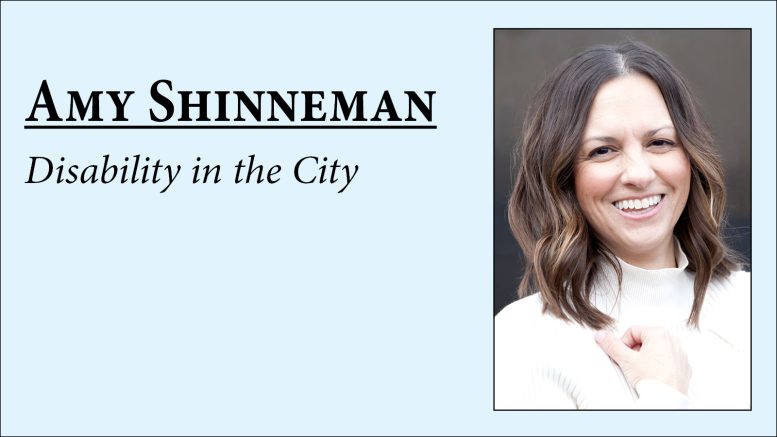Many of us have likely heard the phrase “my disability doesn’t define me.” What comes to mind when you hear this? This is one of those phrases that can spark a lot of conversation and disagreements, even within the disabled community. I have been told over and over in my life, “your disability doesn’t define you!”
That phrase no longer makes sense to me, and I am not sure it ever did. For a long time, I tried to make it make sense, but it never did. If I say that, how can I expect nondisabled people to not see disabilities as negative? In my humble opinion, I feel like that statement breeds negativity surrounding disabilities.
I think we must be honest in educating others that while we can do many great things, our disabilities do often present challenges. I think we must do that to have our needs met and continue to push for a more accessible world.
For me, it feels right to say, “my disability defines me.” It does. It’s me and all I’ve ever known. It makes me, me. It affects almost everything I do. How does that not define me?
I am proud of that now.
My disability doesn’t always keep me from achieving things, but the lack of accessibility in our society often slows down the process or makes some things unattainable. If I’m saying my disability doesn’t define me, to me, that seems like I’m shining a negative light on disabilities. That is not how I feel about my disability. I always must consider my disability when making decisions. I cannot separate from it. That seems definitive.
I spent far too many years trying to stuff away my reality of being disabled. It’s not a fun way to live. Trying to cover something up that is impossible to hide. It’s also exhausting on a whole other level – trying to pretend like your body doesn’t have different needs and often demands a different pace than that of a nondisabled person. It makes me sad to look back and think of the emotional stress I caused myself by denying my reality and not advocating for my own needs to make things a little smoother. However, I felt a lot of shame surrounding my disability for a very long time.
Society has come a long way in recognizing those who live with disabilities are human just like anyone else. Still, a long way to go, but seriously a lot of progress has been made by those who live with disabilities as well as those who support us by raising awareness and educating. I feel seen as a human, and a lot of times respected, when the norm used to be that I felt dismissed, diminished just because I am disabled. There are still plenty of those kinds of experiences, but it feels better. Most days anyway.
I know my opinion on this matter isn’t that of everyone who lives with a disability. I get it; this is just my take on that statement as a 49-year-old woman who has never known anything other than living in a disabled body. My opinion on this likely would have been different even 10 years ago. I’ve made a lot of progress in the arena of self-acceptance, especially since finally being diagnosed a little over five years ago after years of searching.
It takes humble courage to see and accept ourselves just as we are. However, it’s a great start to moving more towards an inclusive world for all. If we can start by including our whole selves, I believe we have made a good dent.
Until next time …
Amy Shinneman is a former National Ambassador for the Muscular Dystrophy Association, disability blogger, wife, and mom of two boys. You can find her blog at humblycourageous.com and reach her on Instagram @ashinneman.


Be the first to comment on "Disability defined"